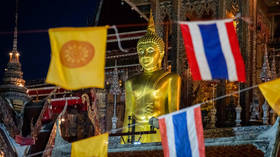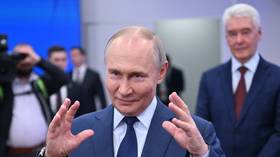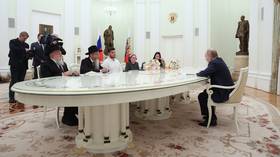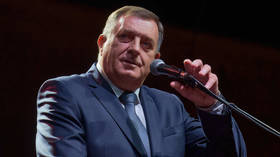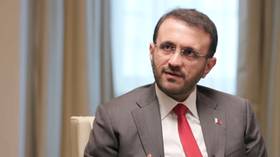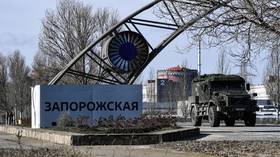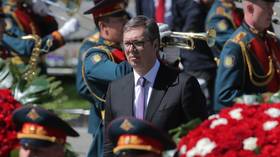NATO member declares intent to join BRICS
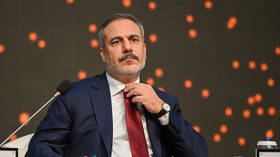
Türkiye will seek to join the BRICS group of nations and intends to bring up the issue at an upcoming meeting of the economic bloc’s foreign-ministers in Russia, Ankara's chief diplomat Hakan Fidan announced on Tuesday.
Speaking to reporters while on a three-day visit to China, Fidan stated that Türkiye has long been waiting to become a member of the European Union, but has for years faced opposition from some of that bloc’s members. In this context, Ankara is now considering BRICS as an alternative platform for integration, the minister explained.
”We cannot ignore the fact that BRICS, as an important cooperation platform, offers some other countries a good alternative,” Fidan said, noting that while the group still has “a long way to go,” Ankara sees the “potential in BRICS.”
During an event at the Center for China and Globalization (CCG) in Beijing, Fidan said he was looking forward to attending the meeting of group’s foreign ministers, which will include representatives from Brazil, Russia, India, China, South Africa, Iran, Egypt, Ethiopia, Saudi Arabia and the UAE. The event is set to take place next week in the Russian city of Nizhny Novgorod.
Moscow has welcomed Ankara’s interest in joining BRICS. Kremlin spokesman Dmitry Peskov has stated that the topic of Türkiye’s membership in the group will be featured on the agenda of next week’s summit, which this year is being chaired by Russia.
Peskov noted, however, that the economic bloc may not be able to fully satisfy the interests of all the numerous countries that have expressed a desire to join BRICS. Nevertheless, he stated that “such an active interest” is welcomed and that the group will do everything within its power to maintain contact with all interested nations.
Last week, Russian Foreign Minister Sergey Lavrov also noted that the doors of BRICS are open to the representatives of the most “diverse economic and political systems and macro-regions.”
The only condition to join the group is a commitment to work on the basis of the key principle of the sovereign equality of states – something Russia’s Western colleagues appear to be struggling with, Lavrov commented.
